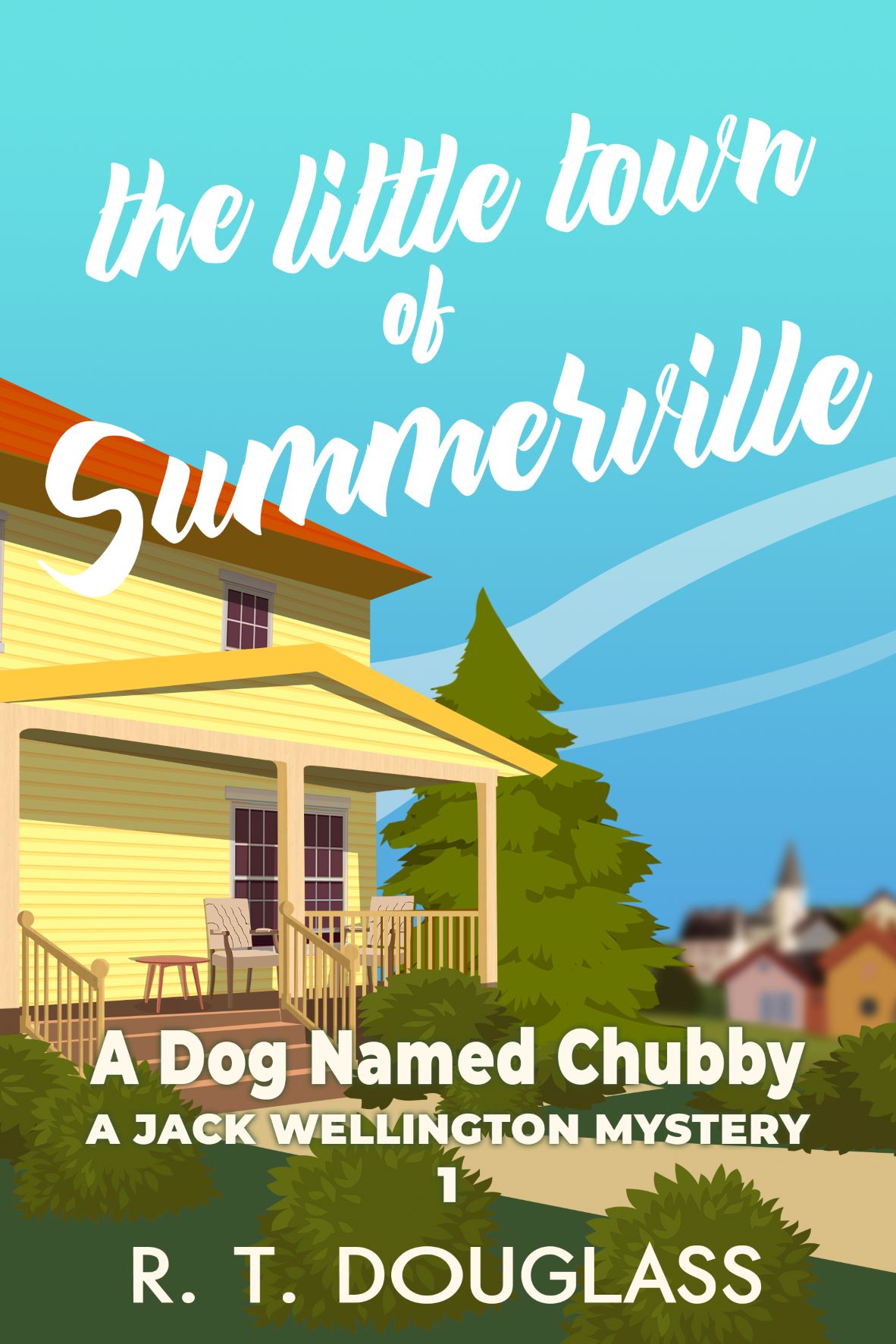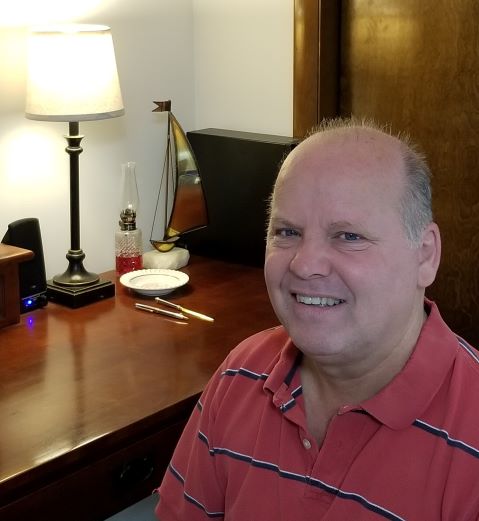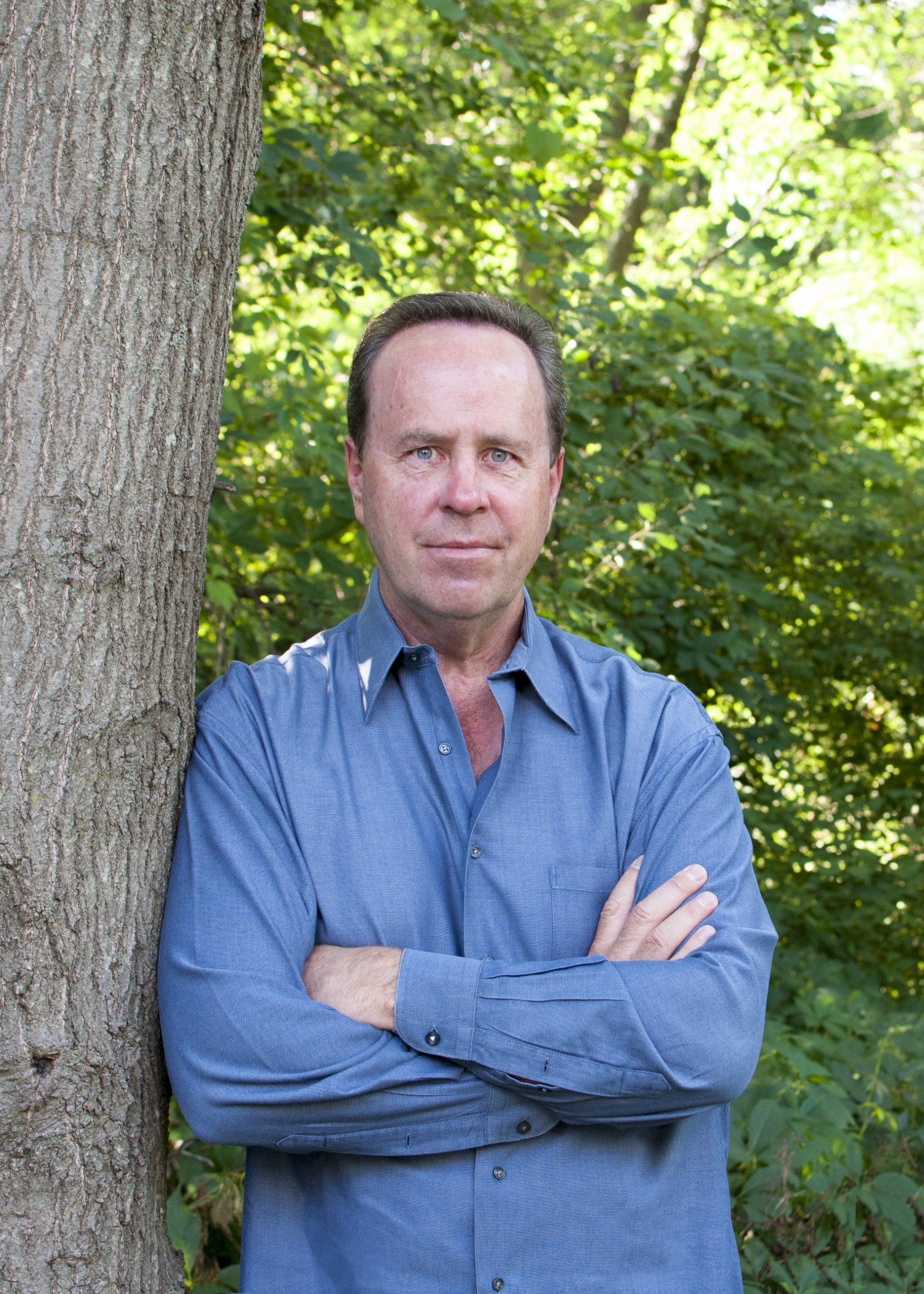African Vengeance
by Steve Braker
December 14, 2021 Virtual Book Blast
Synopsis:
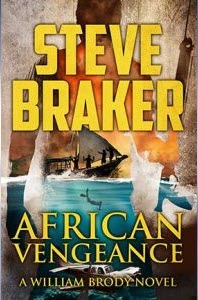
He didn’t go looking for trouble. It found him anyway…
Kenyan coast. William Brody longs for a quiet life. Although he’s still recovering from a recent bout of malaria, the former Special Forces major agrees to help some locals retrieve cargo lost in the ocean depths. But when he dives and discovers ten million dollars of drug money on a sunken plane, the simple favor turns into deadly stakes as vicious thugs hijack his vessel.
Trapped and fearing for his friends, Brody botches his escape attempt and accidentally destroys every cent of the dirty cash. And with the entire crew imprisoned, the grizzled ex-soldier is handed a sinister ultimatum: replace the illicit fortune or watch everyone he’s sworn to protect die.
Will Brody find a bounty big enough to save all their lives?
African Vengeance is the fast-paced fifth book in the William Brody African Ocean Adventure Series. If you like intriguing plots, vividly detailed settings, and nail-biting suspense, then you’ll love Steve Braker’s edge-of-your-seat thriller.
Book Details:
Genre: ThrillerPublished by: IndiePublication Date: December 1, 2021Number of Pages: 275Series:William Brody African Ocean Adventure Series, #5Purchase Links: Amazon
Read an excerpt:
Mtwappa, Kenya, East Africa
The insane rattle on the corrugated roof sounded like machine gun fire. It was hopeless. All the patrons of the bar could do was wait for the onslaught to end.
It was the Kusi, or the Southern Monsoon, when storms crashed in off the Indian Ocean like tsunamis hitting a beach. Full of force and violence, nothing could stand in their way. The squalls came in gangs, sitting off in the ocean malevolently waiting until their numbers grew, then marching towards the enemy relentlessly, striking with impunity. Roads flooded, roofs leaked, people went home hungry and wet. Unable to dry their clothes, they worked the next day and got even wetter.
The monsoon killed the weak and the old. If you could not get warm or dry, then the coughs and colds crept into your bones. Pneumonia took many. With no dry kindling, and rivers running in the streets. Life became even tougher.
When the rain stopped, like a relay team passing the baton, the sun would break through. Another wave of purgatory would follow. Swarms of sand flies and rain ants emerged from the bush, flowing like the rivers below them into homes and the mouths of babes. The climate created a heaven for mosquitoes of all shapes and sizes. The death-giving female anopheles mosquito lived in the houses and streets. All she needed was a drop of sitting water. No more than a spoonful would be ample to give her larvae life. She waited for her prey to sit, just for a moment, long enough to push the needle-sharp proboscis into an uncovered arm or leg and suck some blood, at the same time passing a microscopic parasite into the unsuspecting host. After two weeks, the chills would arrive, then the sweating and headaches. Soon the poor unsuspecting victim would be bed-ridden, delirious one minute and hot to the touch, the next freezing and shivering in misery. The local mganga, or witch doctor, would pass by, leaving leaves and bark from the neem tree, or Arobaini as it was locally named. Arobaini means forty in Kiswahili. The tree was known to cure forty different diseases from diarrhea to malaria or even the dreaded dengue fever.
Grandmothers boiled the bark with water to make a tea that tasted almost too bad to drink. The old lady held her child’s nose and poured the foul liquid down the screaming infant’s throat. The child would gag and vomit as the brew burned its way down. Village life was hard on everyone during the rains, and only the fittest survived.
The Full Moon Bar sat on the edge of Mtwappa Creek, its few stalwart residents finding a haven from the torrential rain. Everyone watched each batch march in from the ocean, day after day. Brody had decided to sit out the Kusi with his old friend Barry, the manager of the bar. Barry was a cheery Kiwi who had washed up on the shores of East Africa many years ago and decided to stay.
He was a larger-than-life chap in every way at 6’6’’ tall and roughly the same around the waist. A happier, drunker, friendlier man was hard to find in Mtwappa. He had a mop of dark thinning hair showing his obvious Italian roots, and normally, two or three days’ growth of pepper and salt whiskers. His piercing blue eyes always held a faraway gaze as if he was looking at the horizon, planning a day’s sailing. In the monsoon, clothes were difficult. One minute it was blowing a gale, the next one hundred percent humidity. Barry went for what used to be a pale blue button-down shirt that had been washed and ironed so many times it was just off-white, black board shorts, and a pair of ever-faithful leather deck shoes that were so old they fit like gloves.
Barry shouted to Brody over the machine gun fire. “Mate, how do ya feel? You look like shit.”
Brody had succumbed to malaria. Being a white guy, or Muzungu as they were known in East Africa, he had no resistance to the parasite. “My God, Barry, that malaria really hits you, like a sledgehammer in the chest. I didn’t know what the hell happened. One minute I just had a bad headache like the flu back home, the next I was in a hospital bed thinking I was going to die.”
Barry lifted his tumbler full of dark sugarcane rum off the table. “Mate, you need to take a few snifters of this every day. Keeps the buggers away. Or when she sticks that thing in you, she just gets pissed and buggers off.” His deep baritone laugh filled the room.
Brody took a long pull from his cold Tusker lager, locally made and about the only lager you could buy in this part of Kenya. “That sounds like a bloody good idea. I think I’ll start that habit.” He looked across at the head waiter polishing the wide driftwood bar. “Joshua, can you get Barry a refill, and bring me a double, no ice. I’m still recovering from this bloody malaria.”
Brody had arrived a month ago at the small inlet on the East African coast known as Mtwappa Creek. After tying up Shukran, his forty-foot wooden dhow, to the reclaimed stone wharf jutting out from the bar, he had quickly settled into a quiet life of drinking, fishing, and diving.
His first week had been full of great sun, sea, and sand, but during the second week, the dreaded bug had caught him. He found himself in hospital for ten days, one minute hot to the touch, the next freezing, tossing and turning in the sweat-filled bed. The parasite had infected his blood system, giving him terrible nightmares. Suddenly, he was back to his army days fighting in the fetid jungles of the Democratic Republic of the Congo, rain pouring twenty-four hours a day, trails flowing like rivers. In his dreams he could feel the red welts from the deadly insect bites. As the malaria parasite infected his brain, the dreams became so real. His team came across a band of drug smugglers moving contraband into Kenya and Tanzania through the porous borders. He jolted awake as the bullets flew through the air, splintering tree bark, sending deadly six-inch-long, razor-sharp slivers of wood in all directions. Night turned to day as flares went up and grenades were thrown.
Next, after falling back into a restless sleep. He found himself back in the remote deserts of Somalia facing child soldiers with Coke bottles full of glue seemingly attached to their noses. The children’s pupils were constantly dilated, looking like saucers in his dreams. They were kids, dressed in ragged T-shirts, torn jeans shorts, no shoes, and red bandanas on their bristly heads. Most were no older than twelve or thirteen years. They should have been kicking a ball around. In his delirious state, they raised their AK-47s and pulled the triggers. Sometimes he saw the bullets coming at him, watching the hollow points of lead rip open his chest and tear his stomach open. Other times he was the one to shoot the youngsters. There seemed to be more and more of them. He kept firing. They kept coming, hundreds of them, then thousands. He was killing children. The H.K. just kept shaking in his hands, like the movies. Endless bullets for endless children. As the battle-hardened kids charged, he would kill them, tearing each child’s body to pieces. Blood spurted in all directions. He could taste it in his mouth. He slipped on the thick red liquid and fell into a long tunnel with all the faces of the children he had shot, like a house of horrors at the fairgrounds, only to be brought back to reality with a jolt.
He had opened his eyes and seen Wanjiku staring at him. “Man, what the hell was that all about!”
Brody had looked at her frightened face. “It was a bad dream, that’s all.”
“I don’t want any of your dreams. I can tell you that. You were thrashing about shouting for the kids to stop.”
Brody had laid quietly on the ruined soaking-wet bedsheets, the haunting memories still flooding through his brain.
Wanjiku was a good friend. He had met her the last time he was in Mtwappa. Her family owned a bar-restaurant and hair salon in the town. He had instantly enjoyed the company of her family, especially Wanjiku’s father. Mwangi was a wheeler-dealer-cum-bar owner and knew everyone and everything that went on. If you wanted something, he was the man to ask. Wanjiku was eagerly following in his footsteps.
She had sat by his bedside for what seemed like the whole ten days. When the release day came, Wanjiku was on hand with a local taxi driver to take them the twenty miles back to the Full Moon Bar. On his arrival, Barry had insisted he take one of the rooms available on the waterfront.
Since then, Brody had been concentrating on getting his strength back, like Popeye Doyle in The French Connection where Gene Hackman fights to recover from an enforced heroin addiction. Brody struggled each day, putting on his running shorts and shoes then half-walking, half-jogging along the beach. A little further each day.
It had been a week since his return from Mombasa Hospital, and he was beginning to feel like his old self again. The jog was turning into a run, and the sit-ups and push-ups done at each end of the journey were getting easier. Life was coming back, flowing through his veins.
Wanjiku was a constant visitor. He could tell she wanted more than just a friendship, but Brody wanted his freedom right now. And he knew she would want more than he could offer. Sometimes he felt stupid, as she was probably the most beautiful girl he had ever met. In her mid-twenties, she stood 5’6” in her pretty bare feet. She had long, firm, shapely legs, ending in a round solid butt, a thin muscular waist and an ample bust. Her skin was golden-brown and blemish-free. To top it off, her dazzling smile just took his breath away. In London or New York, he was sure she would be a catwalk model. But here in Mtwappa, she was just another African girl scraping a living buying and selling clothes or serving in her father’s bar.
Brody took a sip of his sugarcane rum and looked out through the fringe of raindrops pouring off the metal roof. Fifty feet away, but hardly visible, sat Shukran, looking miserable and forgotten, her bilge pump valiantly pumping gallons of water flowing from the deck. Barry saw his gaze and said, “Mate, you must be missing the life of the ocean waves stuck here in this place.”
Brody nodded his agreement. He longed to be back aboard Shukran with his crew, heading out to fish or dive, or maybe just to sail for a week and see where the wind took them.
Shukran was a forty-foot, fat-bellied dhow and was home for Brody since he had arrived in East Africa, after leaving the Special Boat Service several years ago. She was his pride and joy. Over the last few years, the dhow had been lovingly restored. Shukran, which means “‘thank you” in Kiswahili, was normally polished to a shine and could moor up proudly in any marina in the world. The deck planks shone in the sun, along with the stainless-steel and brass fittings. She was fitted with a 120hp Yanmar inboard engine for when the wind didn’t blow. Otherwise, they used the triangular lateen sail to get around. Over the last few years, he had become an expert sailor, but even with his skills, he needed his crew of Hassan and Gumbao to sail her safely.
Brody asked Barry, “You’ve been here for a while. How long does this rain last?”
“Well, mate, it kind of comes and goes. We can have this for a week or so, then the sun comes out for a while. It’s nature, mate. You just can’t tell.”
They sat in the early afternoon gloom with nothing better to do than have another rum and wait for the better weather.
The following day, Brody woke as the dawn light hit the fast-running water of the tidal creek, no more than ten feet from the end of his bed. After jumping in the shower to get rid of the nighttime sweat, he headed over to the bar for breakfast. The apartments were designed to enhance the bar’s turnover. To say they were basic was stretching it. You got a living room, bedroom, shower, and balcony to sit on and drink while the creek wandered past.
If Brody was on Shukran, he would get fresh coffee from Hassan as he waited for his Mahamry—small, deep-fried cake the Swahilis loved to eat for breakfast. Currently, Joshua, who Brody was sure slept at the bar, managed to at least get the coffee sorted out.
Brody gave the bar man the traditional Swahili greeting for the morning: “Habari asubuhi, Joshua.”
Joshua looked like he had just stepped out of an African fashion show. He was wearing a bright yellow collarless shirt called a dashiki, with elephants marching around his ample stomach. “Habari asubuhi, Mr. Brody. Coffee as usual?”
“Great, Joshua. I need it before my run.”
“I hope you are recovering, Mr. Brody. That malaria is bad for you Muzungus.”
“Tell me about it, friend. I thought my days were up in the hospital I can tell you.”
He gulped down a mug of strong black Arabic coffee with two sugars, then stretched for a couple of minutes before setting off on his morning routine.
Each day felt better. The soft golden sand of the beach felt like it was pulling him towards the ocean. Every pace felt easier. The energy came flooding back into the wasted muscles of his arms and legs.
The run was two and a half miles out and the same back. As he ran, the early morning sun burned his scalp through the baseball cap. Moisture from the downpour of the previous day was being sucked back up into the atmosphere. It was like running through an invisible cloud which clung to your skin and slowed you like moving through thick maple syrup.
He reached the gnarled old mangrove tree at the halfway mark and started the thirty press-ups followed by fifty sit-ups. The blood was pumping, and his lungs heaving, chasing the oxygen, but it all felt good. For the first time in a while, the exercise was enjoyable. He was on the mend.
The torture was changing to pleasure again. The last ten sit-ups passed in an instant, then he charged off down the beach. A full breakfast would be waiting for him and some more of that thick, sweet aromatic coffee.
On his third cup of coffee, Brody sat watching the morning start. The creek was busy as the fishermen took advantage of the sunshine heading out in “Ingalawas,” short canoes carved from tree trunks. The pied kingfishers flitted above the water, hovering then suddenly diving to pluck an unsuspecting fry from the water. Yellow-billed storks lined the riverbank wading in the shallows on the lookout for anything tasty. Their smart black and white plumage made them look like traffic cops directing the rush hour. But their nine-inch-long, razor-sharp, bright yellow beaks, which hovered just above the water, meant business. It was odd as they also had a ludicrous orange feathery crest which shaded their eyes from the sun. All in all, it made for a very strange ensemble. The birds stood statue-like still with large black eyes studying the depths. Then they moved faster than the eye could follow—master fishermen snapping up young red snappers or skipjack tuna from the mangroves.
Brody was enjoying the view, relaxing in the warmth of the sun when he heard a familiar voice. “Hey, boss. You back from the dead?”
His good friend and crew member Hassan came walking from the restaurant kitchen. “Hi, Hassan. Habari asubuhi. Where have you been for the last seven days? I’ve been looking after Shukran all alone.”
Hassan was in his late twenties and had been with Brody since he arrived in East Africa. He was a typical Swahili from Pemba Island off Tanzania. As a Swahili, he was devoutly Muslim, but he had dealt with Muzungu tourists over the years so had become lenient about being around bars and alcohol. He wore his usual bright-white kanzu, a full-length robe traditionally worn on the coast. On his head was a kofir, a brimless cylindrical cap with a flat crown covered in bright embroidery. His nut-brown face creased into a broad mischievous smile. “But boss, I left you with that Kikuyu girl. She seemed to be doing a good job, and you weren’t complaining.”
Brody laughed. “Ah, but Wanjiku can’t make coffee like you, my friend. So where did you go?”
“Boss, I headed off to Pemba to see my mum and dad. Everyone sends their salaams back to you. My sister is so happy to be on the mainland in uni. My dad wants her to be an engineer, but Mum says no. She wants her to be a doctor. There is none on the island right now.”
Hassan made himself comfortable at the table and told the story of his journey some one hundred miles to the south. When he had finished his story and drunk a soda, Brody asked, “What do you think of this weather? The sky is clear today. Maybe we have a break and could do some free diving or fishing. I’m much better and would love to get wet.”
“Boss, you never know with the monsoon. Especially the Kusi. She comes and goes. But it looks good.
Perhaps we wait a couple more days and then pop out and have a look. Where is Gumbao? Have you seen him?”
“I haven’t seen him for days. We’ll have to ask around town and the jail.”
Brody said, “O.K., you go look for him. I’ll check over Shukran to see if we have any maintenance to do before setting out.
***
Excerpt from African Vengeance by Steve Braker. Copyright 2021 by Steve Braker. Reproduced with permission from Steve Braker. All rights reserved.
Author Bio:
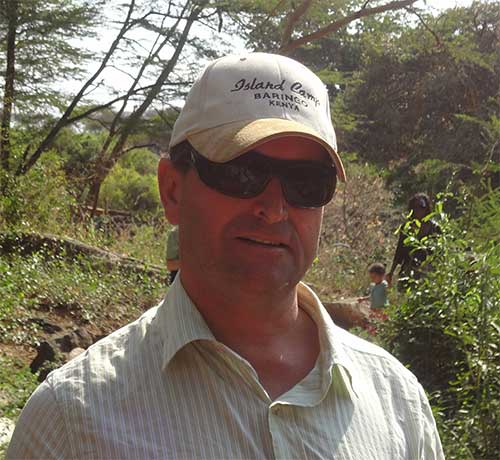
In 2000 Steve Braker moved his young family from his native UK to Mtwapa, Kilifi in Kenya within the coast of East Africa. He has sailed the coast in a multitude of different sailing boats, working as a captain and taking diving clients to out of the way places along the coast and to the Tanzanian islands of Pemba, Mafia, and Jewe and up to the borders of Somalia. As an avid diver, Steve trained to become a P.A.D.I. open water dive instructor and has taught many students over the years. He has over 1,000 dives under his belt.
Steve loves to pull on his experiences and develop them into fast-paced action thrillers. He speaks several of the languages spoken along the coast of East Africa and loves to barter in the markets in Swahili. He lives to explore areas he has never been and to bring the adventures to life through the characters in his books. Steve currently reside in Mombasa, Kenya.
Catch Up With Steve Braker:
Tour Participants:
Visit these other great hosts on this blast for more fun!
Join In on the Give Away!
This is a rafflecopter giveaway hosted by Partners in Crime Virtual Book Tours for Steve Braker. There will be 1 winner of one (1) Amazon.com Gift Card (U.S. ONLY). Void where prohibited.
Get More Great Reads at Partners In Crime Virtual Book Tours


